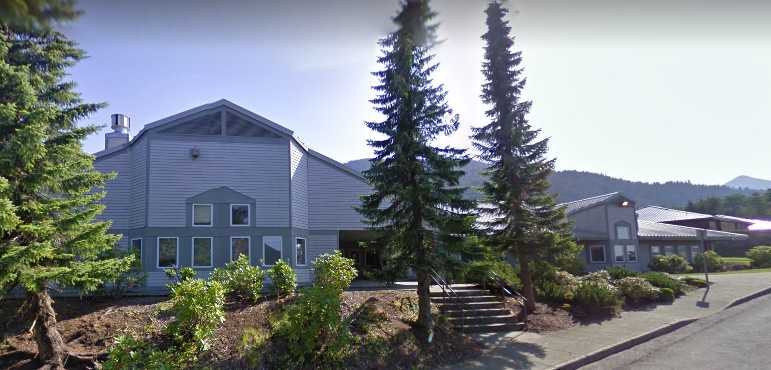
Akeela, an Alaska-based behavioral health provider, is leaving Ketchikan. The non-profit organization, which also has facilities in Homer, Kenai, and Anchorage, announced it will be closing its doors in the First City on June 30.
Akeela has operated two facilities in Ketchikan for over a decade: the Gateway Center for Human Services, which offered counseling and outpatient resources for drug abuse and addiction, and KAR House, a residential long-term treatment facility.
Clinton Campion, an attorney representing Akeela, announced the closure at an April 4th meeting of the Ketchikan City Council.
According to Campion, the organization made the decision to pull out of the city within the last week. A decision that Mayor Dave Kiffer said feels sudden and leaves the city and the council scrambling.
The closure lines up with the end of Akeela’s commitment under their current 3-year grant cycle with the state to operate in Ketchikan.
Campion pointed to a lack of staffing as the reason for the shuttering.
“Despite the closure in October of 2023, Akeela has worked diligently to try to reopen the KAR house and to continue to staff the Gateway Center,” said Campion, referencing when KAR House temporarily closed its doors last fall, citing a staffing shortage. “There have been recent investments and challenges in recruiting by other local and regional treatment providers. Akeela has been unable to maintain a sufficient workforce to staff the facilities.”
Not everyone agreed with this reasoning though.
“Our community behavioral health center pays $15 and change an hour,” said Ruth Bullock, a private counselor and the former clinical director for Akeela’s Gateway Center, during the meeting’s public comment period. Bullock said that the lack of staffing was because the Gateway Center and Akeela failed to offer a livable wage.
“It’s a cheap excuse. It’s a cheap excuse to say ‘we can’t hire people.’ You don’t offer a competitive wage, you won’t find people to work. That is not the fault of the community. But we sure have paid dearly for it.”
Bullock also stressed the seriousness of the mental health crisis in Ketchikan.
“In my 30-some years of living here, we have less services in the behavioral health field than I have ever been aware of. I think it’s pathetic,” she said.
Vice Mayor Janalee Gage was also critical of Akeela’s existing services. She said that the Gateway Center originally had more than 40 employees and offered over a dozen programs. Then, around five years ago, she said that it started to degrade.
“All I’ve seen is people not getting the help they need and being funneled out and ignored. And at the same time employees expected to live on the wages that were being offered in 2012. So no disrespect, but I don’t even want to think about how Akeela is going to assist us in this soft transition when we basically have been falling off the cliff for the last five years,” said Gage.
“The issues of mental health in this community are terrible,” agreed councilmember Jai Mahtani. He expressed a lack of trust in Akeela’s official statement that they would be working with other local providers during the transition to help residents struggling with addiction and mental health amid the community’s lack of services, calling it a travesty.
“And I don’t think Akeela has ever stepped up to the plate. And how are you assuming that local mental health care providers are going to step up?” Mahtani asked.
City manager Delilah Walsh said that behavioral health services are the responsibility of the state, meaning that the state’s Division of Behavioral Health is responsible for the oversight of all mental health and substance abuse services throughout Alaska. Walsh said that in Ketchikan, they do this through two grants to Akeela, one focusing on mental and behavioral health and the other meant to fund the treatment of substance misuse.
For a new provider to step into the space left by Akeela, they will have to go through the state protocol for a grant. Then they need to receive approval from the city to secure the grant and occupy the vacated Gateway building. It is unknown how long that process could take.
Campion, Akeela’s lawyer, told the council that the organization is in conversations with PeaceHealth Ketchikan Medical Center and the city manager to ensure that their clients and stakeholders will have a smooth transition come June 30.
Disclosure: Jai Mahtani is a member of KRBD’s volunteer board of directors. He does not have any say in newsroom operations.








